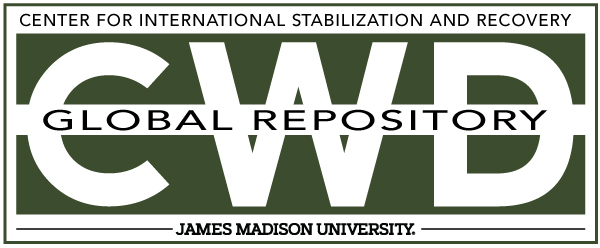Document Type
Other
Creative Commons License

This work is licensed under a Creative Commons Attribution-Noncommercial-No Derivative Works 4.0 License.
Publication Date
1-2008
Keywords
Centers and Organizations, UNMAS, 2007, Annual Report
Abstract
The operations managed by the United Nations Mine Action Service—or UNMAS—in 2007 allowed tens of thousands of people in hundreds of communities to resume their normal lives, reclaim their livelihoods and put formerly dangerous land to safe and productive use. In addition, thousands of kilometres of mined roads were cleared, enabling men, women, girls and boys to once again travel safely to markets, health centers and schools. Fewer civilians are living in fear in the nine countries or territories where UNMAS works. UNMAS continued to pursue the goals set forth in the United Nations Inter-Agency Mine Action Strategy for 2006 to 2010. It helped a number of countries meet their obligations under international treaties, particularly the Anti-Personnel Mine-Ban Treaty. With support from UNMAS, for example, Afghanistan was able to complete destruction of its stockpiled anti-personnel mines in 2007. One of the more remarkable achievements of the year was the removal of more than one hundred thousand unexploded cluster munitions from 32 million square metres of land in southern Lebanon. Also, in support of an international effort to address cluster munitions that cause unacceptable harm to civilians, UNMAS played an important role in coordinating United Nations input into a new Convention on Cluster Munitions, which will open for signature in Oslo in December 2008.
Included in
Defense and Security Studies Commons, Peace and Conflict Studies Commons, Public Policy Commons, Social Policy Commons



